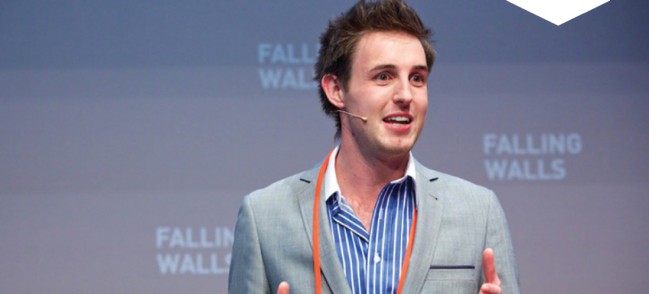John Woodland, a PhD student in the Department of Chemistry, took second place in South Africa’s first Science Slam competition in January 2014, wowing the audience with his enthusiasm, lack of jargon, good diagrams and effective animations.
Woodland spoke about his research into the development of a fluorescent probe to detect free haem, an iron-containing compound that forms the non-protein part of haemoglobin (red blood cells) and some other biological molecules. Free haem can be a very toxic molecule and has been implicated in a number of pathological conditions, such as malaria.
Science Slams – inspired by Poetry Slams, in which poets compete against each other by reciting their poetry – were developed in Germany in 2006 and have since gained popularity around the world. Woodland was one of six German and South African postgraduate and postdoctoral presenters, who each had 10 minutes to take science out of the lab and promote its everyday applications.
Acknowledgment at the Science Slam was not the only feather in Woodland’s cap in 2013. After attaining success during the South African leg, he was chosen to present his research (this time in only three minutes) at the Falling Walls Lab in Berlin. There he won third place in the Young Innovator of the Year competition. A reward for this achievement was an opportunity to present the same talk at the Falling Walls Conference, billed as the “international conference on future breakthroughs in science and society”.
“I am passionate about science and about this country. It is imperative that we get people interested in, and inspired, by science in South Africa. We live in a scientific age. Everyone ought to be familiar with basic scientific ideas and, more importantly, ought to think critically about the world and the information they are fed,” maintains Woodland.
Making waves
Michelle Knights, a PhD student in Cosmology and Astrophysics, was the winner of South Africa’s first ever FameLab competition and represented South Africa at the FameLab International semi-finals, where she talked about the use of pulsars to demonstrate gravitational waves, which was postulated by Einstein, and is one of the areas that will be studied by the Square Kilometre Array (SKA) project currently under development in South Africa.



Comments are closed.